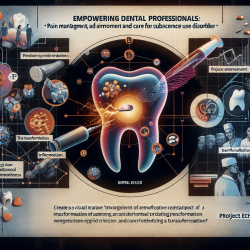Introduction
In the ever-evolving landscape of healthcare, the role of clinical ethics committees and consultation services is becoming increasingly vital. However, the qualifications and preparedness of individuals serving in these roles often come into question. According to the research article "Education and the Improvement of Clinical Ethics Services" by George J. Agich, a complementary approach to traditional educational methods can significantly enhance the effectiveness of clinical ethics services.
The Current State of Clinical Ethics Education
While there is a growing number of healthcare professionals trained in bioethics, the percentage remains small compared to those serving on ethics committees. The article highlights that much of the education in clinical ethics occurs without substantial institutional support, often leaving many areas unaddressed. This lack of formal education can lead to only evolutionary changes, rather than the revolutionary improvements needed.
Quality Improvement: A Complementary Approach
Agich suggests that adopting quality improvement techniques can be a game-changer for clinical ethics services. By focusing on areas of weakness and systematically applying quality improvement methodologies, ethics committees can make more significant strides in improving their services. This approach not only enhances the capacity for clinical ethics but also builds confidence and justifies the need for support.
Practical Implementation for Practitioners
For practitioners looking to improve their skills, the research emphasizes the importance of identifying areas of weak ethical performance and collaborating with healthcare providers to pursue demonstrable change. Here are some practical steps to consider:
- Identify Weaknesses: Conduct regular assessments to identify areas where ethical performance is lacking.
- Apply Quality Improvement Techniques: Use methodologies such as Plan-Do-Study-Act (PDSA) cycles to implement changes and measure their effectiveness.
- Collaborate with Healthcare Providers: Work closely with healthcare teams to ensure that changes are practical and can be seamlessly integrated into existing workflows.
- Focus on Communication: Develop skills in conflict resolution and effective communication to better handle ethical dilemmas.
Conclusion
By adopting a quality improvement approach, practitioners can enhance their clinical ethics services, leading to better outcomes for patients and healthcare institutions alike. This method not only addresses current weaknesses but also builds a more robust framework for ethical decision-making in healthcare.
To read the original research paper, please follow this link: Education and the improvement of clinical ethics services.










